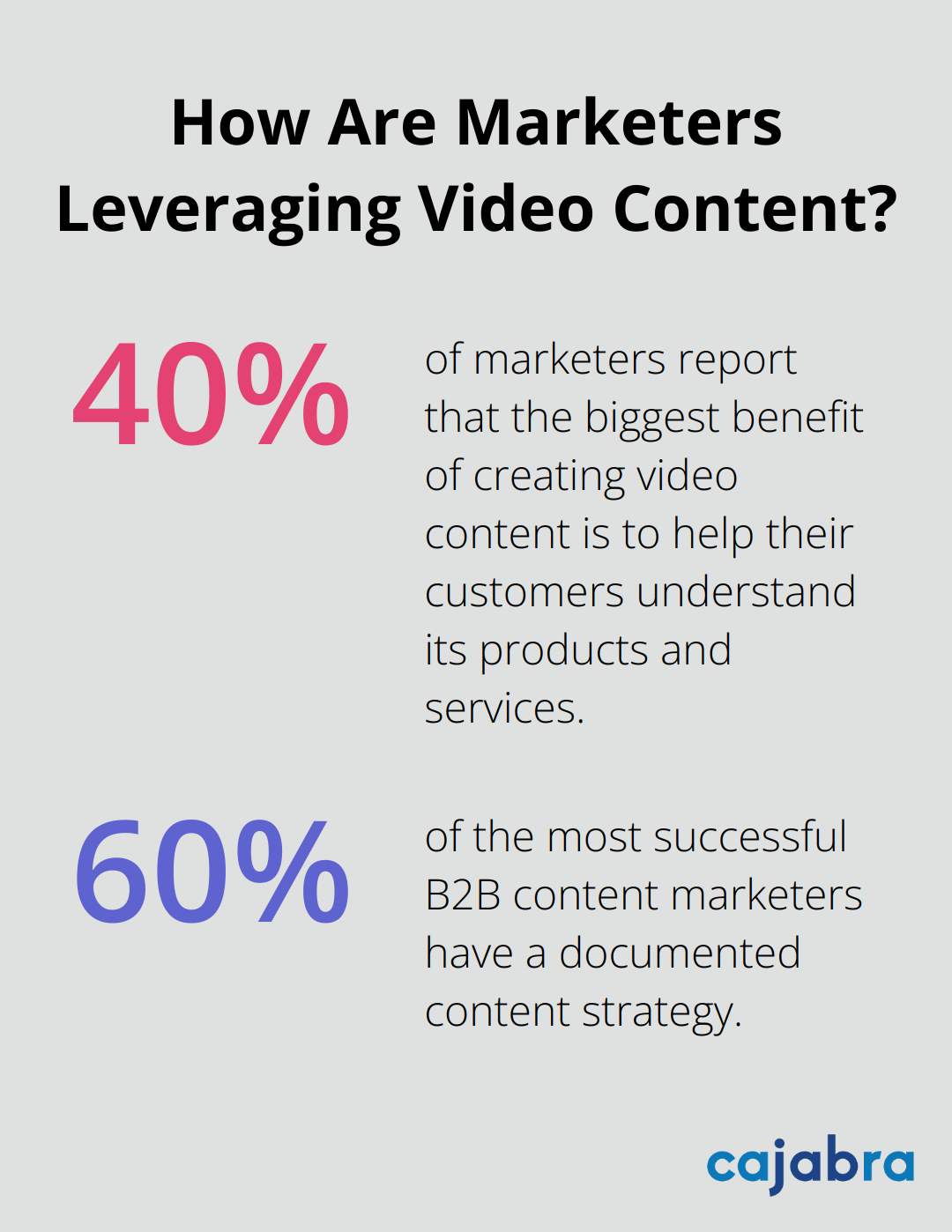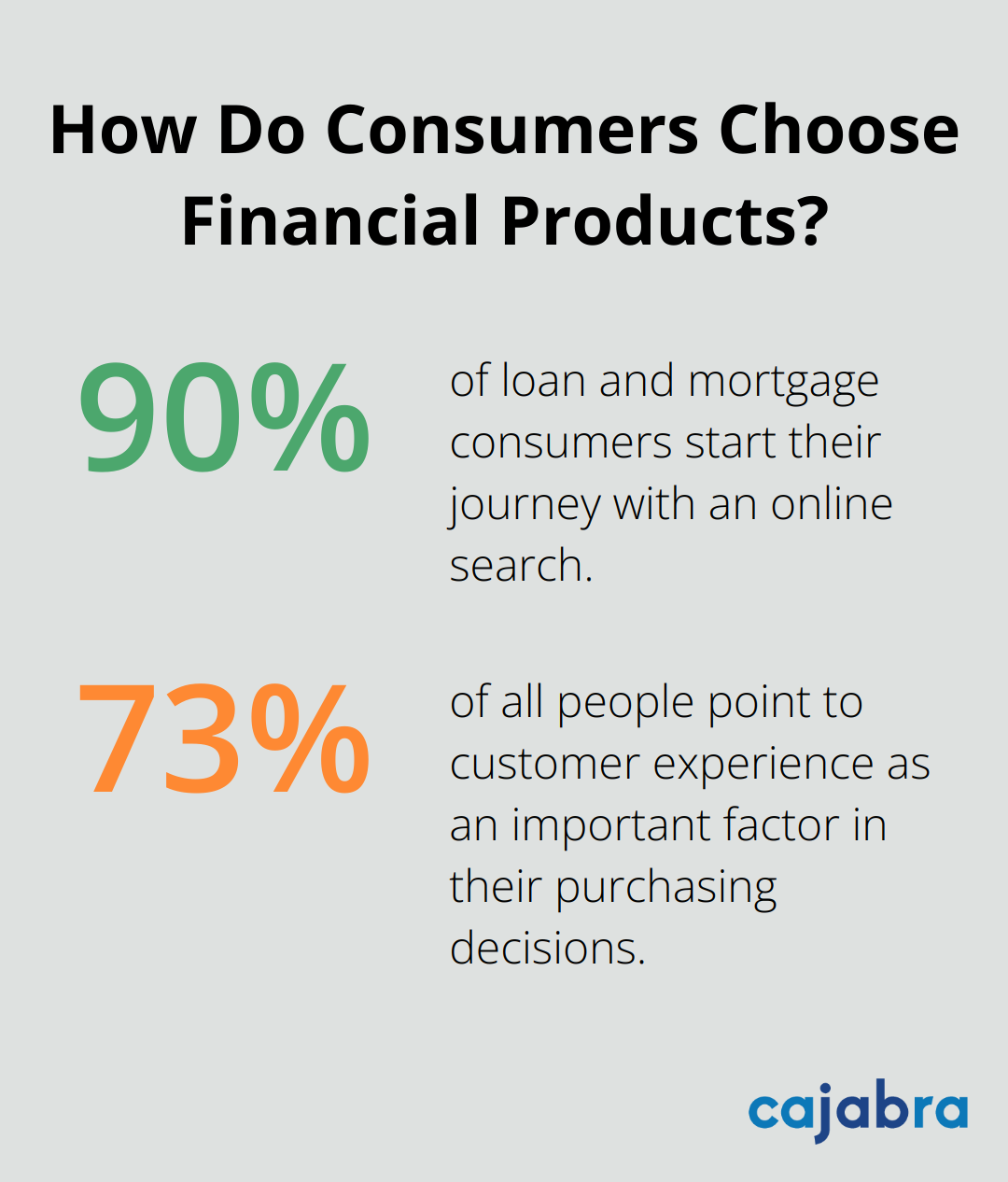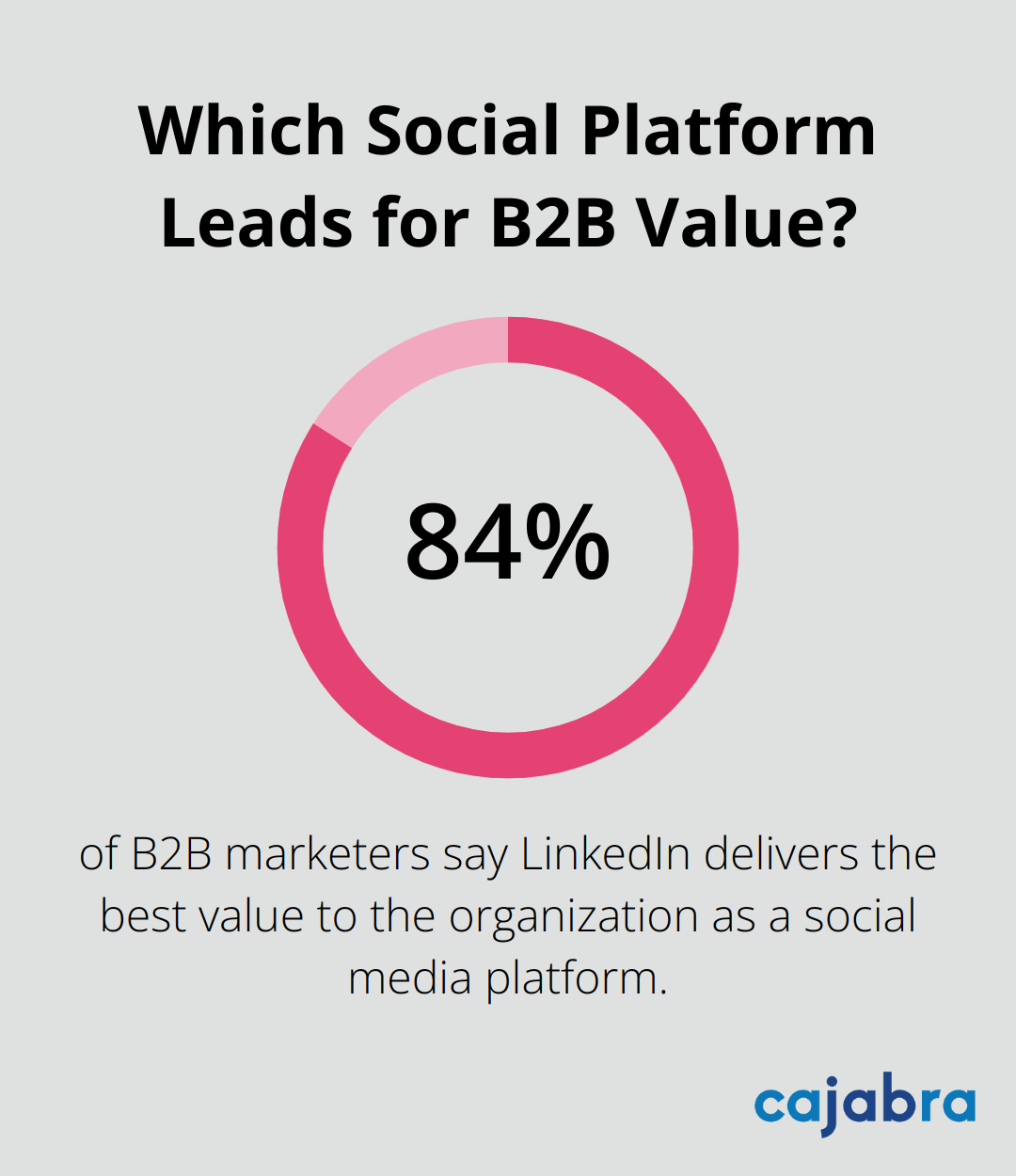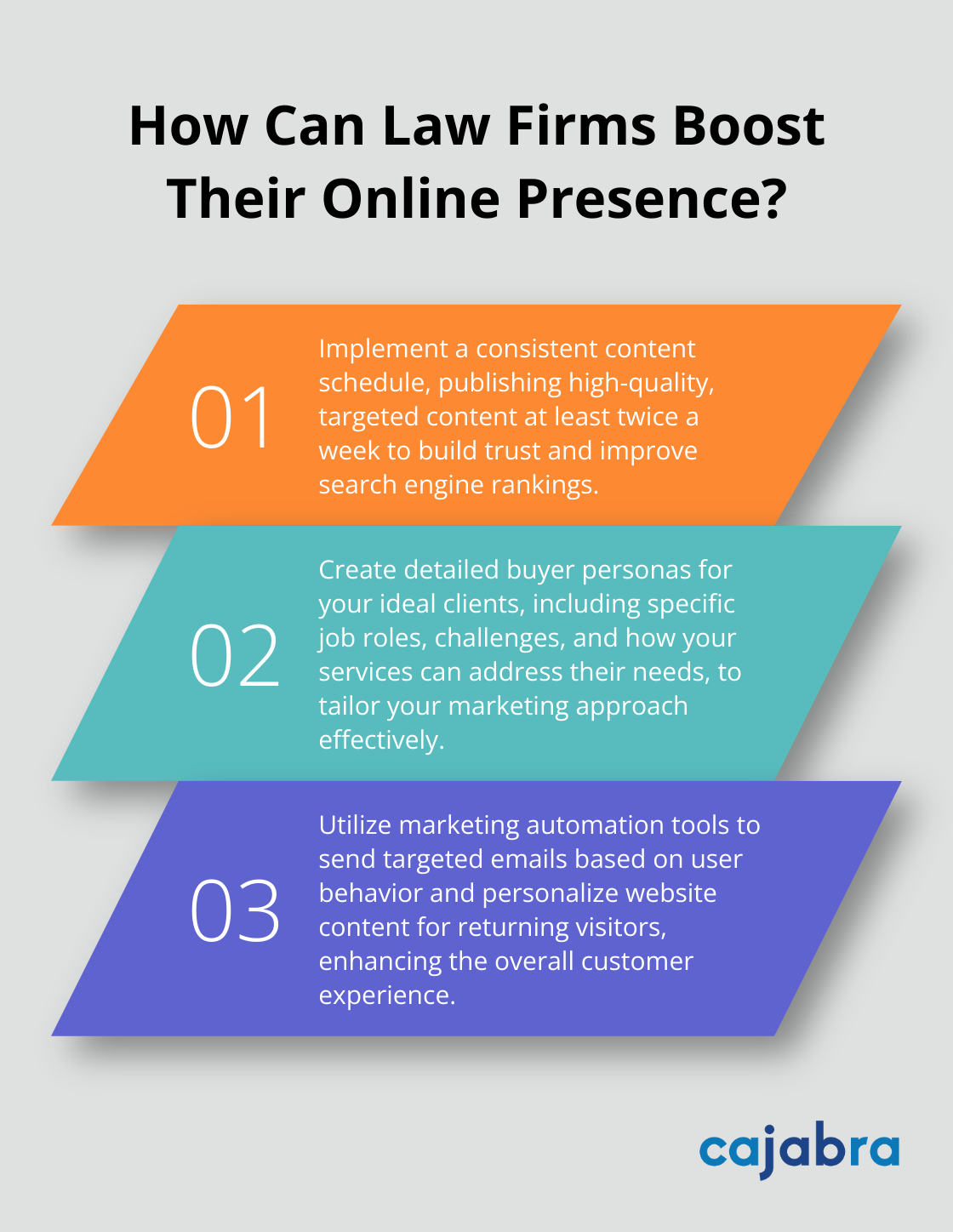
Digital marketing is a complex landscape that demands a strategic approach. At Cajabra, LLC, we've found that mastering the 4 Cs of digital marketing is key to success in this ever-evolving field.
These pillars - Content, Customer, Channels, and Conversion - form the foundation of effective online marketing strategies. In this post, we'll break down each component and show you how to leverage them for your business.
In the digital landscape, content reigns supreme. High-quality, targeted content can transform an accounting firm's online presence and lead generation efforts. Quality content in digital marketing transcends well-written text; it creates value for your audience. For accounting firms, this means producing content that addresses specific pain points of potential clients. A blog post explaining recent tax law changes (and their implications for small businesses) can position your firm as an authority in the field.
While blog posts remain a staple, diversifying your content types helps reach a broader audience. Videos explaining complex accounting concepts, infographics summarizing financial data, or podcasts discussing business finance tips cater to different learning styles and preferences. A study by HubSpot reveals that 40% of marketers report that the biggest benefit of creating video content is to help their customers understand its products and services.
Creating content that truly resonates requires a deep understanding of your audience. For accounting firms, this might mean segmenting content for different client types - small businesses, high-net-worth individuals, or specific industries. Tailoring your message to each segment increases engagement and conversion rates.
Consistency in content creation is often overlooked but proves essential for building trust and authority. A regular publishing schedule keeps your audience engaged and improves your search engine rankings. According to Content Marketing Institute, 60% of the most successful B2B content marketers have a documented content strategy.
Artificial Intelligence (AI) is revolutionizing content creation in digital marketing. AI-powered tools can analyze vast amounts of data to identify trending topics, optimize content for search engines, and even generate drafts of articles or social media posts. This technology allows marketers to produce more targeted, relevant content at scale. However, human oversight remains essential to ensure the content aligns with brand voice and values.

As we move forward, it's clear that content forms the backbone of digital marketing strategies. But content alone isn't enough. To truly succeed, we must understand our audience on a deeper level. Let's explore how putting the customer at the center of our digital marketing efforts can lead to unprecedented success.
Market research is not just for big corporations. Small accounting firms can benefit from understanding their potential clients better. Start by analyzing your current client base. What industries do they represent? What are their common pain points? Use tools like Google Analytics to gather demographic data about your website visitors. This information can reveal surprising insights about who's interested in your services.
Once you have data, it's time to create buyer personas. These are fictional representations of your ideal clients. For an accounting firm, you might have personas like "Small Business Owner Sarah" or "CFO Frank." Include details about their job roles, challenges, and how your services can help them.
Personalization extends beyond using a client's name in an email. It involves tailoring your entire marketing approach to meet specific needs. For example, if you know a segment of your audience struggles with cash flow management, create content addressing this issue. Use marketing automation tools to send targeted emails based on user behavior. 90% of loan and mortgage consumers start their journey with an online search, highlighting the importance of personalized digital experiences.
Your relationship with clients shouldn't end after they've signed up for your services. Collect feedback regularly through surveys, interviews, or social media interactions. This ongoing dialogue helps you refine your marketing strategies and improve your services. According to PwC, 73% of all people point to customer experience as an important factor in their purchasing decisions.
In today's digital age, data is king (and queen). Utilize analytics tools to track user behavior on your website and social media platforms. This data can provide valuable insights into what content resonates with your audience, which pages they spend the most time on, and where they tend to drop off. Armed with this information, you can make data-driven decisions to optimize your marketing efforts and improve user experience.

Understanding your target audience is an ongoing process of learning, adapting, and improving. This knowledge forms the foundation for choosing the right channels to reach your audience effectively. Let's explore how to select and leverage these channels in the next section.
The digital marketing world offers numerous channels, each with unique strengths. Social media platforms like LinkedIn and Twitter excel for B2B marketing, while Facebook and Instagram reach broader audiences. Email marketing remains a powerhouse (with an average ROI of $36 for every $1 spent). For accounting firms, professional networks and industry-specific forums can attract potential clients effectively.
Selecting the right channels requires understanding where your target audience spends time online. If you target CFOs and financial decision-makers, LinkedIn might become your primary focus. (84% of B2B marketers say LinkedIn delivers the best value to the organization as a social media platform.)

Your business goals also influence channel selection. For brand awareness, platforms with high reach like YouTube or Twitter might take priority. For lead generation, a combination of SEO-optimized content marketing and targeted PPC campaigns could produce better results.
Individual channels have merits, but the real power lies in integration. A cohesive multi-channel strategy keeps your message consistent across all touchpoints. You might use LinkedIn to share thought leadership content, drive traffic to your blog for in-depth insights, and then use email marketing to nurture leads.
Automation tools can streamline this process. Marketing automation platforms help schedule posts across multiple social media channels, trigger email sequences based on user behavior, and even personalize website content for returning visitors.
To optimize your digital marketing efforts, measure the performance of each channel. Google Analytics tracks website traffic sources and user behavior. Social media platforms offer native analytics tools that provide insights into engagement rates and audience demographics.
For a more comprehensive view, use attribution modeling to understand how different channels contribute to conversions. Last-click attribution, while common, often undervalues channels that play a role in the early stages of the customer journey.
When evaluating ROI, look beyond the number of leads generated. Consider the quality of leads, the cost per acquisition, and the lifetime value of customers acquired through each channel. This holistic approach will give you a clearer picture of which channels truly drive value for your accounting firm.
Channel selection is not a one-time decision. Review your channel performance regularly, stay updated on new platforms and features, and adjust your strategy as needed. The goal is not to be everywhere, but to be where your ideal clients are, with the right message at the right time.
The 4 Cs of digital marketing - Content, Customer, Channels, and Conversion - form the foundation of a successful online strategy. Each component plays a vital role in creating a cohesive and effective digital marketing approach. Content provides value to your audience, while understanding your customer allows for targeted, personalized marketing efforts that resonate with your ideal clients.

Choosing the right channels ensures your message reaches your audience where they're most active. Conversion strategies turn your marketing efforts into tangible business results. The digital marketing landscape continues to evolve rapidly, with artificial intelligence, voice search, and augmented reality presenting new opportunities for immersive marketing experiences.
At Cajabra, we help accounting firms navigate this complex digital landscape. Our JAB System™ incorporates the 4 Cs of digital marketing to move accountants from overlooked to overbooked in just 90 days. We handle all aspects of digital marketing (including content creation, audience targeting, and channel optimization), allowing you to focus on serving your clients.



